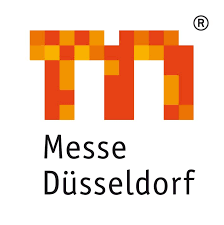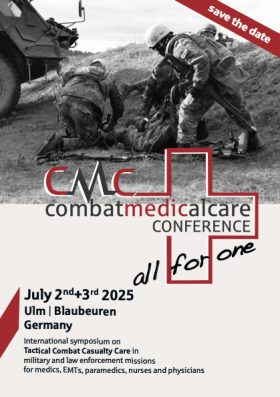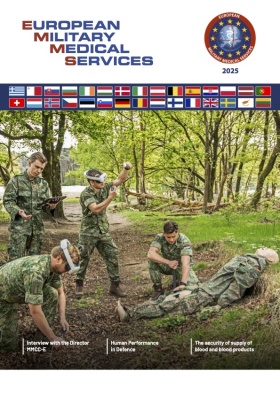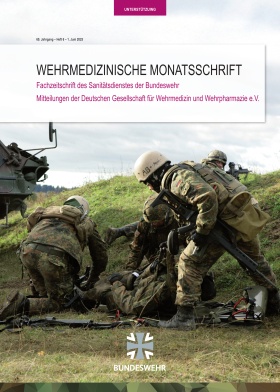
Report: MISETA, T.F. MOLNÁR, S. RENDEKI (HUNGARY)
Potential Role of University Medical Schools in Civil-Military Cooperation (CiMiC)
The Pécs University (Hungary) Experience
The University of Pécs Medical School in Hungary developed the cooperation between military and civilian medicine as an ongoing issue. The Medical University provided much-needed theoretical backup to practice oriented military medicine. The university supported basic/introductionary training courses for young doctors enrolled into the compulsory national military service in the 1980s through the early 1990s. Double loyalty between Hippocrates and Mars has been shared without serious friction.
The last decade of the 20th century brought many sweet promises to the Euro Atlantic geopolitical region, notably the arrival of an eternal or at least a longlasting peace appeared to be at reach of hand. The collapse of the Berlin Wall in 1989 seemed to make the Western hemisphere inquestionably unipolar. The bright expectations in „Weltpolitik” was similar to what happened in medicine when an avalanche of exploration bacteria and antibiotics arrived promising to cure all malefactors of humankind. The newly unchained countries of Central Europe looked into a flourishing future happily disbanding their huge so called „socialist and internationalist” armies formerly integrated into the Moscow led Warsaw Pact. Compulsory military service turned to be an unfashionable expression in parliaments from Lisbon to Warsaw or Budapest. The cream of the generation of 1968 prevailed occupying the posts of different walks of political and industrial decision-making and opinion leading. Anything related to military or war, national identity or even patriotism received a negative connotation on the Old Continent. A mental post-Vietnam war stress disorder healed leaving some scars behind on the other side of the Atlantic Ocean. Universities on both shores tended to distance themselves from any research and education related to uniformed services. Serious science distance itself from the art of Mars became the new motto – at least in the public relation domain. Political correctness suppressed natural reflexes of self-defence to a degree where the immune status of the society weakened seriously in the name of limitless multiculturalism, peace at any price and the „anything goes” mentality. Even military history became a sort of unwelcomed pariah. This nonchalant attitude of the habitants of the temples of hard sciences seeped into the universities matched with the introverted and isolationist mind set of persons of consequence in the highest echelons of the different European armies.
This stance was challenged first by the wars on the Balkan (1991-1996), an unexpected tragedy in our backyard then, again, stunned by 10.11.2001 and the ongoing asymmetric war against terror and its metastases all relevant and ongoing today. The low intensity conflicts in Africa and Asia posed a background noise until otherwise controllable infectious diseases became a world threat to their fragile host states. Ebola (and other viral diseases and malaria and tuberculosis) are excellent examples of interaction between (dys-)functions of immune systems of human individuals and states. The Madrid train bombing (2004) and the attack on London (2005) made it obvious, the citizens of Europe are vulnerable, regardless to the best intentions of their policy and opinion makers. The events sketched above led to changes in the mind set and attitude in leading intellectual circles of higher education making them security-aware. Some of them on both sides of the pond realized graduate university and postgraduate education might highlight tasks in the support of the immune status of their country and environment. The universities reacted differently according to their own historical and politico-cultural background influenced by their specific national interests, cultural DNA settings and capabilities.
The University of Pécs Medical School in Hungary developed the cooperation between military and civilian medicine as an ongoing issue having its root well before the Century of Surgery. There was a strong military medical heritage, as a stationed military hospital existed under different flags since the late 19th century. The geographical location of the city, gateway to the Balkans, explained the presence of HQ of two infantry regiments and a cavalry unit prior to the Great War. Military medicine and care for industrial accidents (mines, burns units etc) in Pécs went hand-in-hand during and after the Cold War, and since has carried on once our country joined NATO. The Medical University provided much-needed theoretical backup to practice oriented military medicine. The university supported basic/introductionary training courses for young doctors enrolled into the compulsory national military service in the 1980s through the early 1990s. Double loyalty between Hippocrates and Mars has been shared without serious friction.
An early format of teaching disaster medicine, migration and tropical (infectious) diseases control permanently existed, but it was in 2012 when the leadership of the Medical School took a decisive step forward and formed an independent Department of Operational Medicine for research and teaching medicine/surgery under extreme circumstances/conditions. The primary mission was to integrate military (tactical) and disaster medicine with the health related challenges of migration and threats of mass casualty situations (outbreaks of pandemics, earthquakes, tsunamis) The strategic goal was to optimise preparedness for situations where special peacetime and wartime medical challenges overlapped each other. Police medic (law enforcement) education came as a „go-between” – as it shares many features of both scenarios, including its own specific tasks. Mass infections and natural disasters require plenty of special knowledge in peacetime, beyond the standard curriculum of medical university studies. The cooperation between military and civilian offer high opportunities at a low risk. Humanitarian assistance in fragile countries has a Janus face, as it can mitigate the absorption of conflict dynamics. Conceptional differences in aims of the civilian sphere (governmental and NGOs alike) and military organizations might be a problem. Parallelism and subordinations pose as the two main areas of conflicts. We have to accept the differences between war surgery (performed on civilians also, not so rarely) and per se military surgery.
Deployment related problems of the military might be reduced by application of shared civilian specialist knowledge: i.e. trauma, anaesthesia, microbiology imaging etc… Obviously there is less room for the civilians in the combat zone. To help to prepare the military (health) personnel to tackle the challenges is a complex goal, particularly when the aspect of training is highlighted.
The University Medical program is ideally suited towards educating and researching evidence based scientific issues to its students. However, it cannot be a one-way communication: active participation and control of their own side is essential, for the military, too. Quality control of research is the task of the university side, not unrelated to its less hierarchical (more flexible) and inherently reflective structures. Both entities are operated using public funding, their responsibilities are also shared, while a vast majority of the values are common, too.
The official military-civilian cooperation in our University looks back at the year 2010 when the Medical School delegated its first instructor to the Emergency Management of Battlefield Injuries (EMBI) Course in Budapest, Centre of Excellence, Military Medicine. The credentials of the instructor included international reputation on chest injuries (books, lectures etc.). Originally the operation began with one expert on thoracic trauma and through sustained development, the number of Senior Lecturers has grown to four, all defined by EMBI and other related courses. In 2014, thus far we are grateful to include 12 doctors as willing participants in military medicine courses. Additionally we are proud to also include now three medical students who participated in the EMBI courses from our English Program. (One of them is a veteran medic of Afghanistan/ Norwegian Contingent). More are expected, as we recently initiated our Operational Medicine Courses in the graduate curriculum (Hungarian, German and English programs) of the University. The Medical School of the University presented four invited lectures and two posters at the Force Health Protection Congress in Budapest and one oral presentation at the 2nd DiMiMed Conference in Düsseldorf in November, 2014. Two doctors, recently graduated are now enrolled in the PhD School of the University with topics on military medicine, taught by Academy of Sciences degree tutors.
All MD members (full or part time) of the Department are intensive/anaesthesiologist specialists or surgeons or other practitioners on active duty with special interest (and past history of active service) in the field of Operational Medicine. Continuous inter-speciality cooperation provides quality of research/education on fields including psychiatry, infectious disease, microbiology, pharmacology, migration and public health medicine.
The Tactical and Disaster Medicine (TDM) Unit of the Operational Medicine Department covers military medicine, medical care in law enforcement situations (SWAT, anti-terrorist activity) and disaster medicine. Exclusive medical aspects and special needs of military/police operations are a primary topic of discussion. Intensive medicine and emergency medicine/surgery principle applicability are investigated and implemented in a hostile environment and in limited resources/extra high demand for care situations and in very high/complex patient flow. Mass casualty scenarios (MASCAL) and catastrophe medicine challenges complete the spectrum of the competences researched, developed and indoctrinated. Military and civilian practice are evaluated and updated in a bidirectional evaluation manner. Emphasis is placed on the search/training of optimization of the medical/paramedic manpower, evacuation in high demand/danger zones and communication specific scopes and needs; limitations of TDM with regard to medical/surgical principles/protocols are investigated, „Lessons learned” scrutinized. Graduate and postgraduate courses are offered on topics: principles of triage, principles/echelons of evacuation, care under fire, force health protection, mass infection protection/prevention/control. Access to a state of art manual skill labour completes the educational horizon of the department. Organizational skill and leadership trainings are taught in role model and simulation exercises, too. Permanent monitoring of the relevant publications and other forms of reports help updating database, developing new protocols. Apart from the close medical community, involving all sorts of health professional training, there is an extension beyond the Medical Faculty. Other Faculties of the University of Pécs (founded in 1367) are invited to participate in the training/research modules of the Unit. Our goal is to provide soon-to-be doctors/paramedics the skill set and situational awareness of the unexpected during extreme scenarios. We teach how to provide the best (available) treatment in the worst (imaginable and unimaginable) places. Applicability of state of art standard surgical/medical concepts within the framework of army/law enforcement units/NGOs in armed conflicts, terror attacks, political turmoil and natural disasters/catastrophes and other emergencies are the topics under research by our first responder team including a respected and experienced thoracic surgeon, a seasoned and invaluable intensive therapist/Anaesthesiologist as well as some talented and enthusiastic emergency and intensive therapy doctors.
The Medical Humanities Unit (Aka: metamedicine, discursive medicine, medicine in historical perspective and medicine in arts) provides a comprehensive backdrop for out-of- the box lessons into the curriculum of graduate and postgraduate operational medicine education. The primary objectives efforts provide case-book illustrations for research/education for TDM and support allied profiles using its relevant database. Illustrative examples to integrate clinical teaching/research are absorbed from three primary domains: a.) history b.) belles-lettres c.) fine arts. History is seen as state of art medicine/surgery from a perspective of bygone years. Conceptual approach: continuity of ideas, test by success/failures, change of dogmas, paradigm shifts. Ad b.) Medical representation in literature. Historical-conceptual analysis of the impact of war-related bodily and spiritual trauma in the lives of famous people and their related literary characters. Ad c.) Arts as educational tools: illustration, description and understanding of causing and suffering military conflict related wounds.
The Migration Medicine Unit has respected relationship with the WHO and relevant NGOs. Its activity covers home and international issues alike, with particular focus on health problems of Roma population.
Scientific cooperation of the Department within the Faculty of Medicine includes basic science research on tissue injury and on different clinical grounds, like thoraco-abdominal trauma care. The medical interspeciality commitments are strong. Basic research on pathophysiology of lung injury in cooperation with Szentágothai Research Center, Pécs, Hungary. Visceral injury (annual St Sebastian Conference and Workshop on penetrating abdominal/chest trauma). The other is a cooperation with the Faculties of Liberal Arts (History and Literature / BA and MA levels) University of Pécs. Implementation of knowledge on very basic military issues is another, not clandestine, mission of the Department. External cooperation with the Hungarian Police Forces, NATO Centre of Excellence / Budapest have been also established. Former and ongoing contribution on chest trauma issues with the relevant professional European bodies (EACTS, European Society of Thoracic Surgery) are gaining traction and developing the ideal momentum.
Authors:
Prof. Tamas F. Molnár, DSci
Co-Authors:
Prof. Attila Miseta, DSci
Dr. Szilárd Rendeki ,Major (Ret.)
Date: 06/13/2019
Source: Medical Corps International Forum (2/2015)











